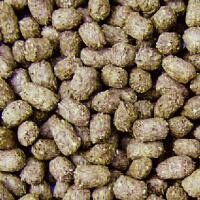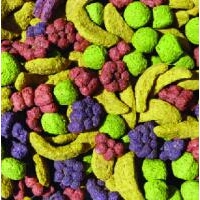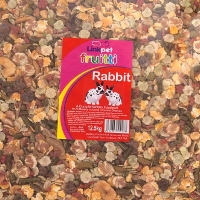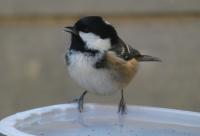- Home
- Special Offers
- New Products
- FAQs
- Customer Video Gallery
- Customer Photo Gallery
- Bird Facts
- Bird Food Blog
- Bird Information
- Feeding Advice
- Small Animal Information
- A to Z of Guinea Pigs
- A to Z of Hamsters
- A to Z of Rabbits
- Basic Care for Guinea Pigs
- Basic Care for Hamsters
- Basic Care for Rabbits
- Basic care for Chinchillas
- Basic care for Ferrets
- Basic care for Gerbils
- Basic care for Mice
- Basic care for Rats
- Buying a Healthy Small Animal
- Does your Reptile need a Licence
- Equipment for Ferrets
- Equipment for Hamsters
- Equipment for Mice
- Equipment for your Chinchilla
- Equipment for your Gerbil
- Equipment for your Guinea Pig
- Equipment for your Rabbit
- Keeping a House Rabbit
- Dog Information
- Cat Information
- Customer Information
- Bird Food
- Small Animals Food
- Pond Fish Food
- Dog Food
- Cat Food
- My Account
| Tweet |

|
Keeping a House Rabbit
Instead of consigning your rabbit to a hutch at the bottom of the garden, why not introduce him to life indoors?
Rabbits are one of the most popular pets in the United Kingdom and also one of the most neglected due to them being misunderstood. Although they appear to be hug-able, adult rabbits generally dislike being cuddled, some even displaying aggressive behaviour towards their owners when approached or picked up, so they do not make suitable pets for the young children they have been bought for. In addition, rabbits are not quite as easy to care for as some people may think. Once young rabbits have reached adulthood, and grown out of the ‘cute’ stage, many then spend the rest of their lives confined to small quarters, often in solitude, with little attention being paid to their mental and physical needs. Subjected to this treatment many rabbits develop stereotypes (behavioural habits) such as vicious biting and scratching, resulting in them being donated to an animal shelter, put to sleep or even released into the wild.
Why house-rabbits?
Thankfully an increasing number of pet owners are realizing that keeping a rabbit in a hutch at the bottom of the garden and only seeing to him for a brief period once a day is unkind, and are inclining towards keeping their pets indoors as house-rabbits. This concept isn't as strange as it may sound; like cats and dogs, rabbits are intelligent, biddable, inquisitive and trainable creatures who can make wonderful companions. Living with a house-rabbit is not dissimilar to living with a dog!
Because of house-rabbits’ stimulating environment and high level of human contact, many first-time owners are amazed at the types of behaviour their pets display. Many will greet visitors enthusiastically and demand to be petted in much the same way as a friendly dog. In addition, the majority of house-rabbits can be litter-trained which makes for easy mucking-out!
Q. Does it cost more to keep a rabbit indoors than outside in a hutch?
A.The costs of keeping a house-rabbit are about the same as keeping one outdoors by the time you have taken bedding, food, veterinary care, insurance and equipment expenses into consideration.
Caring for a house-rabbit
Although many aspects of caring for a house-rabbit are similar to those kept outdoors, such as feeding and veterinary attention, there are other important areas that you need to consider:
Housing:
Bedding:
Tip: It is a good idea to have your house-rabbit neutered when he reaches maturity. This will help eliminate any territorial urine marking around your home and litter-training will be made easier. It is also advisable should you wish to keep more than one house-rabbit, as neutering tends to reduce aggressive behaviour.
Neutering costs around £30-£45, depending on your vet and whether your pet is a buck or a doe.
Feeding:
Veterinary care:
Finally…
Keeping house-rabbits has much to commend it. They can be rewarding pet companions and you will probably be surprised at the strength of bond that can develop between you.
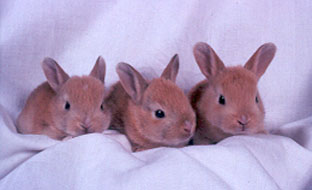
Rabbits are one of the most popular pets in the United Kingdom and also one of the most neglected due to them being misunderstood. Although they appear to be hug-able, adult rabbits generally dislike being cuddled, some even displaying aggressive behaviour towards their owners when approached or picked up, so they do not make suitable pets for the young children they have been bought for. In addition, rabbits are not quite as easy to care for as some people may think. Once young rabbits have reached adulthood, and grown out of the ‘cute’ stage, many then spend the rest of their lives confined to small quarters, often in solitude, with little attention being paid to their mental and physical needs. Subjected to this treatment many rabbits develop stereotypes (behavioural habits) such as vicious biting and scratching, resulting in them being donated to an animal shelter, put to sleep or even released into the wild.
Why house-rabbits?
Thankfully an increasing number of pet owners are realizing that keeping a rabbit in a hutch at the bottom of the garden and only seeing to him for a brief period once a day is unkind, and are inclining towards keeping their pets indoors as house-rabbits. This concept isn't as strange as it may sound; like cats and dogs, rabbits are intelligent, biddable, inquisitive and trainable creatures who can make wonderful companions. Living with a house-rabbit is not dissimilar to living with a dog!
Because of house-rabbits’ stimulating environment and high level of human contact, many first-time owners are amazed at the types of behaviour their pets display. Many will greet visitors enthusiastically and demand to be petted in much the same way as a friendly dog. In addition, the majority of house-rabbits can be litter-trained which makes for easy mucking-out!
Q. Does it cost more to keep a rabbit indoors than outside in a hutch?
A.The costs of keeping a house-rabbit are about the same as keeping one outdoors by the time you have taken bedding, food, veterinary care, insurance and equipment expenses into consideration.
Caring for a house-rabbit
Although many aspects of caring for a house-rabbit are similar to those kept outdoors, such as feeding and veterinary attention, there are other important areas that you need to consider:
Housing:
- Although your rabbit will be kept indoors, you’ll need to provide him with his own cage or 'sanctuary' to give him a safe haven to retreat to if he feels the need. A cage will also allow you to keep your pet secure if he has to be left unsupervised
- A large wire cage makes a suitable pen for your rabbit, with the crates made for dogs and puppies being the ideal size. It is important to choose a pen that provides your pet with plenty of space to move around
- Enrich your house-rabbit's surroundings with equipment to provide plenty of mental stimulation. Rabbits adore cardboard boxes to hide in, along with tubes that mimic the tunnels a rabbit would create in his natural environment
- Rabbit toys are available from pet stores, including balls that can be filled with food, dispensing titbits as your rabbit rolls it. Hanging his favourite fruit and vegetables in his cage will also keep him amused
- Remember that rabbits love to chew, so a home-bunny may not be the ideal pet for a fanatically house-proud person. However, house-rabbits can be trained not to chew furniture etc but it can take quite some time. The best option is to rabbit-proof your home by ensuring that electrical wires, telephone cables, priceless possessions and plants are kept out of rabbit reach (cables can be protected in tough plastic piping)
Bedding:
- Many house-rabbits are easily trained to use a litter tray, which reduces the amount of bedding required and makes cleaning out relatively simple; many pet stores now stock non-toxic litter for house-rabbits
- Your rabbit may also appreciate a cardboard box filled with hay, or one of your old jumpers, as his bed
Tip: It is a good idea to have your house-rabbit neutered when he reaches maturity. This will help eliminate any territorial urine marking around your home and litter-training will be made easier. It is also advisable should you wish to keep more than one house-rabbit, as neutering tends to reduce aggressive behaviour.
Neutering costs around £30-£45, depending on your vet and whether your pet is a buck or a doe.
Feeding:
- Fibre forms an essential part of any rabbit's diet so ensure that your house-bunny has access to fresh, clean hay each day
- Choose a commercially prepared rabbit mixture or pellet to ensure that your pet receives all the nutrients he needs for good health, Twootz provides Fruity Rabbit food, Premium Rabbit Food and Small Animal fruity mix which are both ideal for your Rabbits well being.
- Don’t overfeed your rabbit as this will encourage selective feeding, whereby he’ll only eat the ingredients he enjoys most. Ultimately, if allowed to do this, he will receive an imbalanced diet and probably become overweight as well as suffer from malocclusion (teeth deformities)
- Restricting the amount of food in his bowl will prevent him from selective eating, i.e. make him ‘eat his greens’!
- Remember to provide your pet with a constant supply of fresh, clean water. Using a gravity-feed water bottle is the best way of achieving this
Veterinary care:
- Because of the increasing numbers of rabbits kept as pets, veterinary surgeons are now becoming more accustomed to seeing and treating these animals on a regular basis.
- If your vet isn’t au fait with bunnies, he may be able to refer you to one who is
- As with rabbits kept outdoors, your house-rabbit will require vaccination against viral haemorrhagic disease. Currently prevalent in the UK, this virulent disease strikes alarmingly fast, proving fatal within a day or so. Symptoms, if the animal doesn’t suddenly die without warning, include appetite loss, breathing difficulties, nasal and anal bleeding and a high temperature
- Annual vaccination boosters are required (around £10) and while at the vet’s you should ask him to check your pet's teeth and claws; rabbits’ teeth grow continually and are normally maintained at the right length through chewing
- Some rabbits, however, suffer from a condition known as malocclusion, which affects the alignment of the teeth and prevents them from being worn down properly
Finally…
Keeping house-rabbits has much to commend it. They can be rewarding pet companions and you will probably be surprised at the strength of bond that can develop between you.







